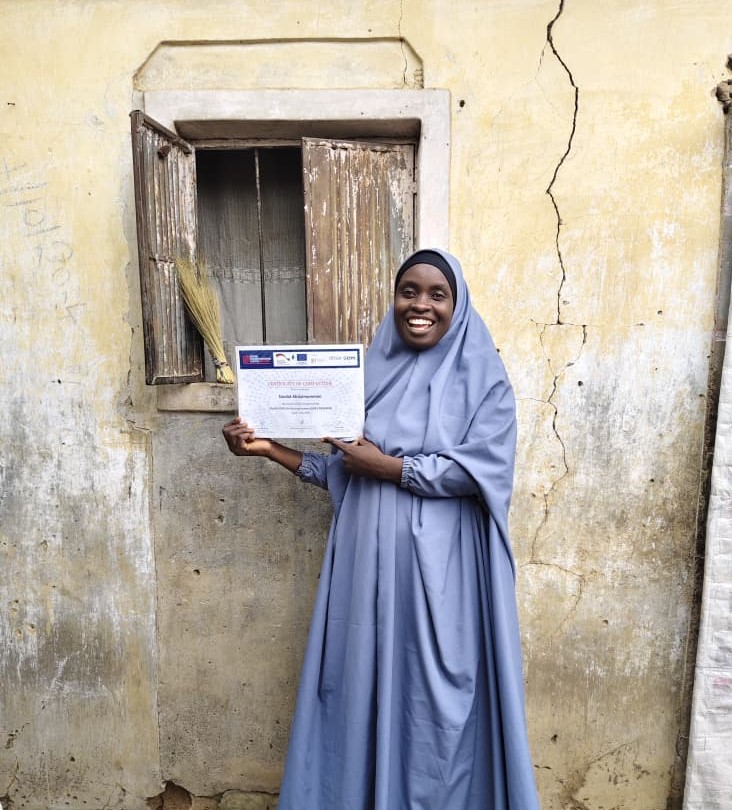
In Dawakin Kudu, a farming community in Kano State, Nigeria, Saudat Kabir is redefining what it means to be a woman in the horticulture sector as she enjoys the income and respect that come with successfully cultivating tomatoes on her newly acquired plot.
Like many others in her community, Kabir initially did not see the real business potential in farming. That perspective changed in 2023 when the HortiNigeria program and its partners were introduced in her community. Through structured training on good agronomic practices delivered on demonstration plots, Kabir learned step-by-step how to raise healthy seedlings, space crops effectively, and control pests. She discovered the importance of using improved seed varieties and when to use mulch and trellising.
I have learned so much, and that knowledge has made me earn more… to support my entire household. I am also more confident in the decisions I am making.
In 2024, Kabir made her first profit from her own harvest, earning 130,000 Nigerian naira (approximately U.S. $85). With part of her earnings, she invested in goats to provide fresh milk for her family and diversify her income. Kabir remarked, “I have learned so much, and that knowledge has made me earn more… to support my entire household. I am also more confident in the decisions I am making.”
Kabir’s transformation did not end at her farm. With support from HortiNigeria, Saudat was nominated—along with nine other female entrepreneurs on the project—during the call for applications to the Digital Skills for Entrepreneurs training implemented by GIZ, GOPA, and Elevate Her Innovation Space digital transformation center.
She earned a certification in Digital Skills for Entrepreneurs (DSE), enabling her to showcase her fresh vegetable produce on social media platforms. This not only helps her reach buyers beyond her community but also strengthens her decision-making, boosts her competitiveness, and contributes to economic growth.
Kabir’s success has made her a respected voice in the community, especially among women farmers, who now see her as a role model.
Equally inspiring is the ripple effect at home. Kabir’s husband has become one of her biggest supporters, openly encouraging other men in the community to invest in women’s training and empowerment.
Kabir’s success shows the importance of appropriate support and resources – such as the training HortiNigeria offers on good agronomic practices and digital media. With these skills from HortiNigeria, its partners, and the belief and support of her family, Kabir is an example of how women can thrive as smallholder farmers in horticulture.
The HortiNigeria program (2021-2025), funded by the Embassy of the Kingdom of the Netherlands in Nigeria, aims to facilitate the development of a sustainable and inclusive horticulture sector that contributes to food and nutrition security in Nigeria. HortiNigeria is led by IFDC and implemented together with KIT Institute, Wageningen University and Research, and East-West Seed Knowledge Transfer Foundation.





